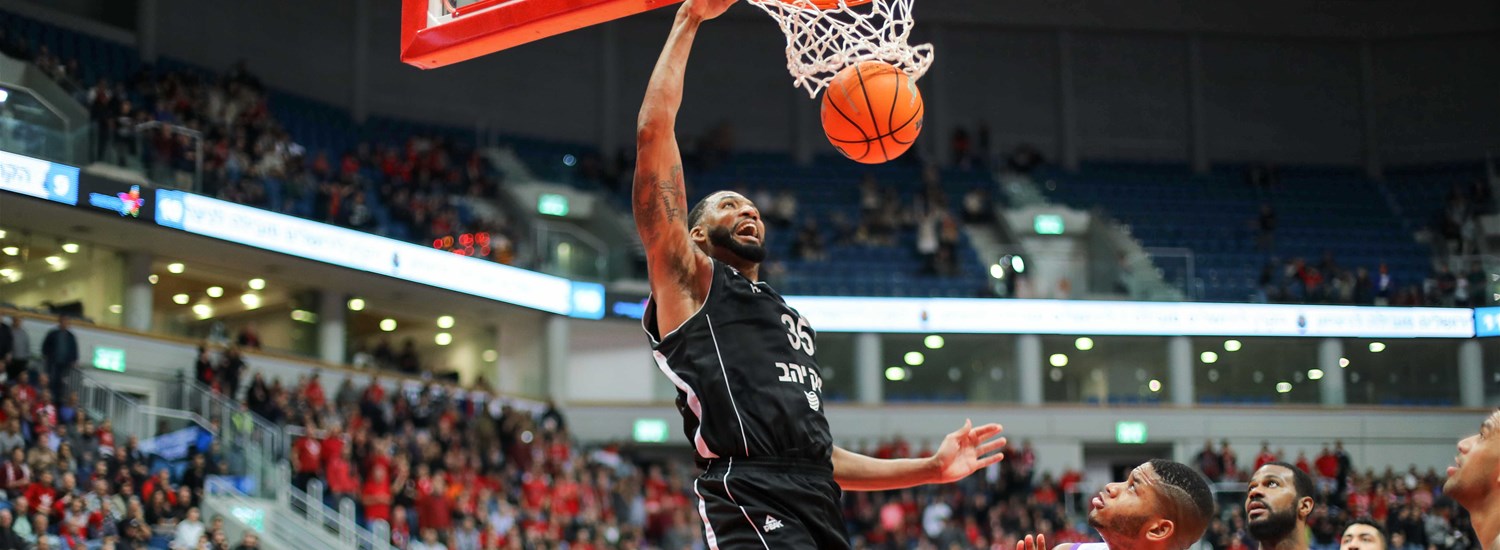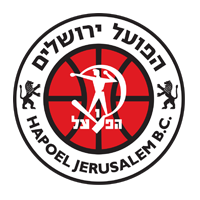
Where we left off: Hapoel Bank Yahav Jerusalem
JERUSALEM (Israel) - Hapoel Bank Yahav Jerusalem face off against Hereda San Pablo Burgos in the only Quarter-Final clash that features two teams which had faced each other in the Regular Season (more on those two games further down). Here's everything you need to refresh your memory on how the Israeli club got to this point:
What Did Jerusalem's Play Look Like Before the Hiatus?
- 'The best defense is a good offense' is an adage that Hapoel live by under coach Oded Kattash, and they certainly demonstrated it is a highly-successful way of living as they led the league in scoring, averaging an amazing 89 points per game.
- Jerusalem's offensive rating at the end of the Regular Season was off the charts, 121 points per 100 possessions, and they also had the highest assist ratio in the league, 20.2 (albeit Iberostar Tenerife and Turk Telekom both had 20).
- Jerusalem's stellar passing was not however the main reason why their offense resembled a well-oiled machine. The simple truth is that Hapoel shot a remarkable 60.6 percent from two-point range, the only team in the league to shoot above 60 percent from within the arc.
- They were (marginally) out of the top-10 in three-point shooting, but it was still good enough to not lower their effective field goal percentage that much - in fact, Jerusalem's eFG% of 38.6 percent at the end of the Regular Season was by far the highest among the 16 teams that made the Play-Offs.
- All that sounds great, but what about defense? Hapoel clearly had the lowest defensive rating of all 16 teams that made the Play-Offs (112.4 points per 100 possessions) but they defended two-point shots decently, allowing opponents to shoot 50.3 percent from within the arc. Their defense suffered more from conceding second-chance points quite generously, as their defensive rebounding rate of 65.8 percent was by far the lower among the teams that made the Play-Offs.
- TaShawn Thomas and James Feldeine each averaged 15.6 points per game and this is just the tip of the iceberg, as the former's all-around versatility meant he led the league in efficiency rating (average PER 21.3) and the latter shot 45.5 percent from three, on average. J’Covan Brown was also an immensely important contributor, averaging 14.3 points and a team-high 4.9 assists per game.
🎶 James Feldeine about to drop the hottest R&B album of the year! 🎶 #BasketballCL pic.twitter.com/Y6v4LVm7de
— Basketball Champions League (@BasketballCL) November 6, 2019
What Had Jerusalem Achieved Up Until March?
Regular Season
Jerusalem started off on a relatively modest 4-2 record in their opening six games but went on to lose only one of their remaining eight encounters and topped Group B on a 13-3 record.
One of those two early defeats came at the hands of their Quarter-Final rivals Burgos in Spain, as Jerusalem were out-rebounded 51 to 27 and lost 91-84 despite a 22-point, 8-assist display by J’Covan Brown.
In the reverse fixture in Israel however, TaShawn Thomas came up with a huge performance rated at 38 in terms of efficiency (27 points, 6 rebounds, 4 assists, 4 blocks) to lead Hapoel to a 96-91 victory over the Spanish side.
J'Covan Brown collected a season-high 25PTS during Game 2 of the #BasketballCL Round of 16 for @JerusalemBasket! 🌪 pic.twitter.com/k2ZUfc3m3G
— Basketball Champions League (@BasketballCL) April 2, 2020
Round of 16
Hapoel completed a 2-0 sweep of Peristeri winmasters in large part thanks to their vastly superior three-point shooting in the series. It's indicative that in Game 2 in Athens, Hapoel shot 36 percent from beyond the arc while Peristeri shot only 15 percent from downtown. Hapoel won that game 79-73 to bag the series, as J’Covan Brown and James Feldeine combined for 49 points, shooting 15 of 28 from the floor between them. In Game 1, Hapoel had prevailed 91-78 at home thanks to a late run, with TaShawn Thomas's 16 points leading five Jerusalem players in double digits.
What Will Stay the Same? What's New?
There is no question that Hapoel will show a style of play in the Athens Final 8 and in the new season that will be almost identical to what we saw up until the hiatus of the 2019-20 season, because head coach Oded Kattash has built his team that way.
There is one notable difference, in that sharp-shooter James Feldeine departed and it's still early to say how long it will take newly-arrived Malcolm Hill to adapt and show the same scoring instinct he demonstrated last season with Astana.
The same question mark applies for another new face, combo guard Malcolm Hill, but arguably the biggest problem coach Kattash is facing in the short-term is how to make up for the absence of J’Covan Brown, who suffered a shoulder injury just before the Final 8 and will be sidelined for several months.
Chris Kramer is of course an excellent replacement, but Brown's contribution to this team cannot be overstated. The same goes of course for the Swiss army knife by the name of TaShawn Thomas, a player so important to Hapoel's schemes that many consider his contract extension as important for the team as any of their new signings.











